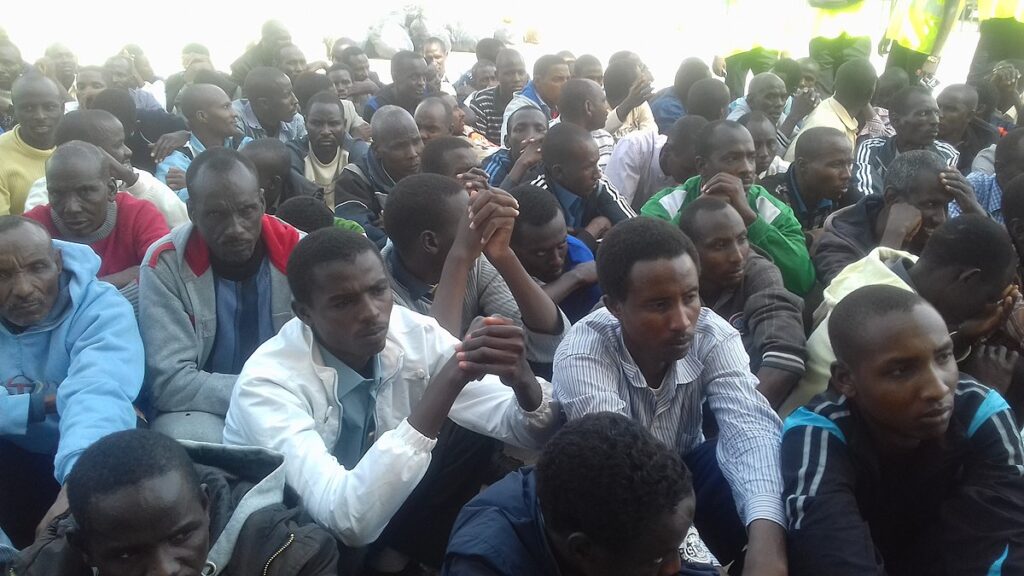Every year, thousands of African immigrants set out on dangerous journeys across the continent, hoping to reach Europe in search of safety, opportunity, or simply a better life. But between them and that dream lies a deadly corridor: the North African transit route. Countries like Libya, Tunisia, Algeria, and Morocco, while geographically vital to the journey, have become known not for safe passage but for violence, racism, and systemic abuse against migrants, particularly those from sub-Saharan Africa. Recent data and testimonies paint a harrowing picture of what many endure in these so-called transit countries.
Libya stands out as one of the most notorious. Since the fall of Muammar Gaddafi in 2011, the country has descended into lawlessness, becoming a breeding ground for armed militias, smugglers, and traffickers. African migrants who pass through Libya often fall into the hands of these groups. According to the United Nations, many are kidnapped, tortured, sold into forced labour, or detained in overcrowded, unsanitary prisons. Detainees are frequently subjected to sexual violence, extortion, and inhumane living conditions. The International Organization for Migration (IOM) has documented thousands of cases of abuse, with many victims reporting that they were treated as “less than human” because of the colour of their skin.
Tunisia, once seen as a more stable country in the region, has recently come under the spotlight for its increasingly hostile stance towards Black African migrants. In 2023, President Kais Saied made controversial statements linking sub-Saharan migrants to crime and accusing them of being part of a demographic plot to change Tunisia’s identity. These remarks sparked a wave of racist attacks, forcing many migrants into hiding or pushing them to flee the country altogether. Human Rights Watch documented numerous cases where migrants were evicted from their homes, assaulted on the streets, or denied access to healthcare and justice. In some cases, they were rounded up by security forces and abandoned in the desert at the Libyan or Algerian borders, with no water or shelter, left to die.
Morocco and Algeria have also been implicated in abuse against migrants. In June 2022, a tragic incident at the Melilla border crossing between Morocco and the Spanish enclave led to the death of at least 23 migrants, though rights groups claim the number could be higher. Videos and witness accounts showed Moroccan security forces using brutal force to push back hundreds of people who had attempted to scale the border fence. Survivors recounted beatings, tear gas, and arbitrary arrests. In Algeria, authorities have routinely conducted mass expulsions of undocumented sub-Saharan Africans, often dumping them in remote desert regions near the Niger border. The IOM has repeatedly raised concern over the inhumane conditions under which these deportations occur.
While European migration policies continue to externalise border control by funding North African countries to intercept and detain migrants, critics argue that this has only encouraged more abuse. Billions of euros have been poured into training, equipping, and paying North African security forces, without proper mechanisms for accountability. As a result, African migrants remain trapped in a violent system where they are criminalised, dehumanised, and forgotten.
For many, the journey ends before they ever see the Mediterranean. Their stories rarely make headlines, yet they are stories of African lives brutalised on African soil. Until there is a serious regional and international response to the abuses faced by migrants in North Africa that is rooted in human rights, not just border control the continent will continue to betray its most desperate sons and daughters on their path to survival.
By Yasmin Khanifa Adel


